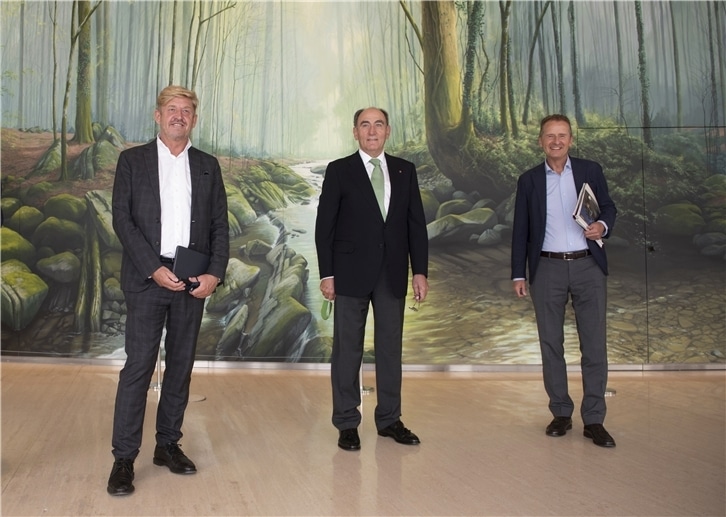Volkswagen has set up a strategic alliance with Iberdrola to expand electrification in Spain, in addition to tie-ups with Italian utility Enel and U.K. energy group BP in Europe, as well as other partners such as Ionity and Aral.
The main goal of the agreements is to supply renewable energy for the electric-vehicle value chain. The companies also aim to develop a public charging infrastructure network and build up to six gigafactories in Europe.
In Volkswagen's alliance with Iberdrola, the automaker will source around 1.5 TWh/year of renewable energy for its facilities on the Iberian Peninsula. The agreement is equivalent to one-third of Madrid's total energy consumption.
The alliance, which can be extended to other countries, also includes plans to supply energy with guarantees of renewable origin (GdO), as well as other energy solutions for Volkswagen's final customers and its network of concessionaires.
In addition, Volkswagen and its partners plan to establish up to six battery gigafactories in Europe by the end of this decade, with a total production capacity of 240 GWh. The first two factories will operate in the Swedish city of Skellefteå and in Salzgitter, Germany.
In response to growing demand, Volkswagen has also decided to change an earlier plan related to cell production, so it can concentrate production of its premium cells at the Northvolt Ett gigafactory in Skellefteå, in collaboration with Northvolt. The production of these cells will start in 2023 and will gradually expand until the companies reach an annual capacity of up to 40 GWh.
Volkswagen's operational gigafactory in Salzgitter, Germany, will produce cells from 2025. It is also planning to set up 40 GWh of annual production capacity in Salzgitter.
“This reorientation will provide greater economies of scale and reduce the complexity of production,” the group said.
The facilities will be powered by electricity from renewable sources. Volkswagen said that it is now considering potential partners and sites for the factories. Together with its partners, it also aims to operate 18,000 public fast-charging points across Europe by 2025. This represents a fivefold increase in its fast-charging network by 2025.
Volkswagen said that the rollout will be done through a number of strategic partnerships, in addition to its joint venture with Ionity. The company wants to establish 8,000 fast charging points across Europe together with BP. They will install fast chargers with a charging capacity of 150 kW at 4,000 BP and ARAL service stations in Germany and Great Britain.
In collaboration with Iberdrola, Volkswagen will also cover the main traffic routes in Spain. In Italy, the German automaker will collaborate with Enel to establish a fast-charging network both on motorways and in urban areas.
Volkswagen will invest around €400 million ($476 million) in the entire European program by 2025. It will make other investments via external partners. In addition, the automaker is expanding its public fast-charging network in the United States and China.
This content is protected by copyright and may not be reused. If you want to cooperate with us and would like to reuse some of our content, please contact: editors@pv-magazine.com.



4 comments
By submitting this form you agree to pv magazine using your data for the purposes of publishing your comment.
Your personal data will only be disclosed or otherwise transmitted to third parties for the purposes of spam filtering or if this is necessary for technical maintenance of the website. Any other transfer to third parties will not take place unless this is justified on the basis of applicable data protection regulations or if pv magazine is legally obliged to do so.
You may revoke this consent at any time with effect for the future, in which case your personal data will be deleted immediately. Otherwise, your data will be deleted if pv magazine has processed your request or the purpose of data storage is fulfilled.
Further information on data privacy can be found in our Data Protection Policy.